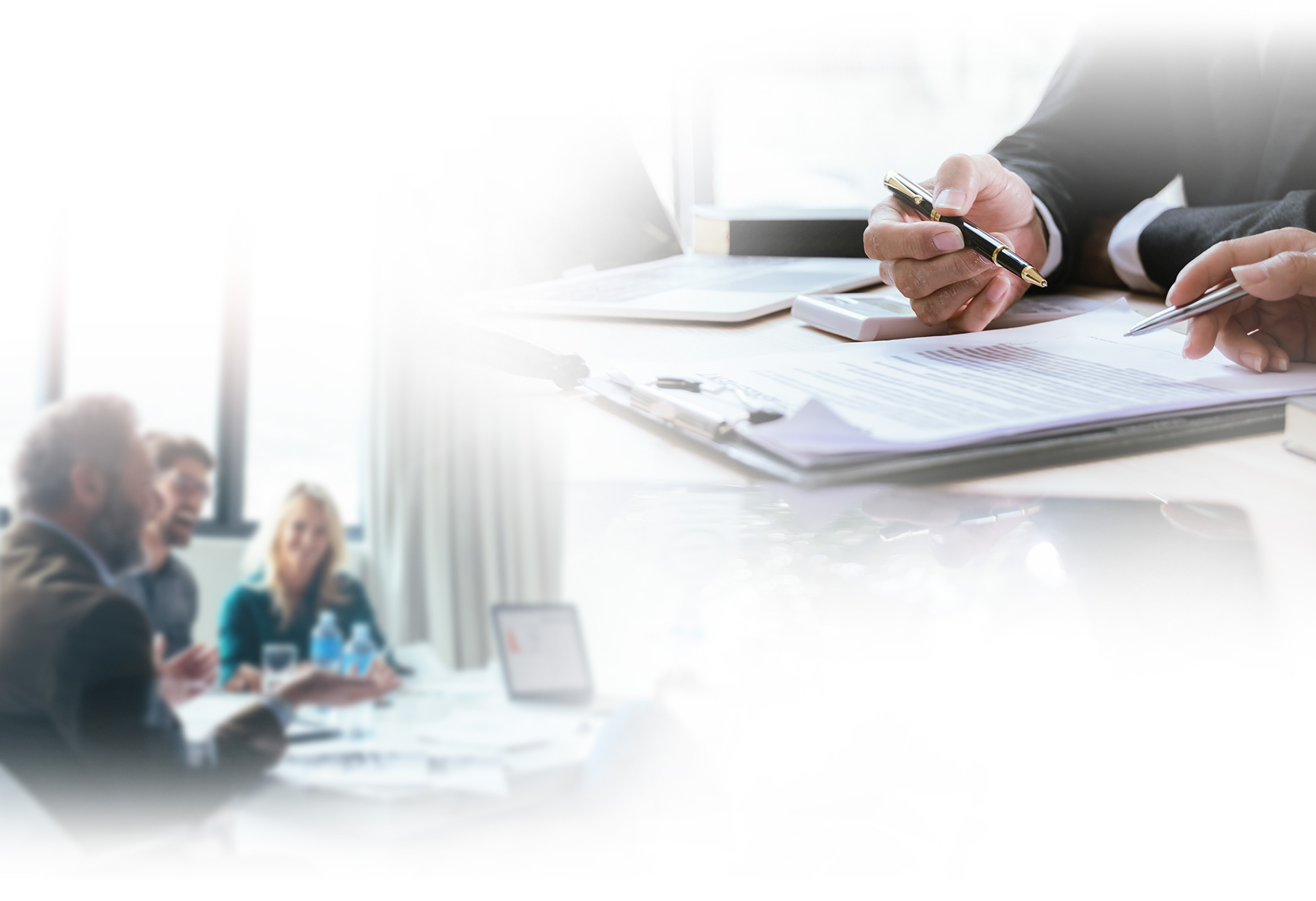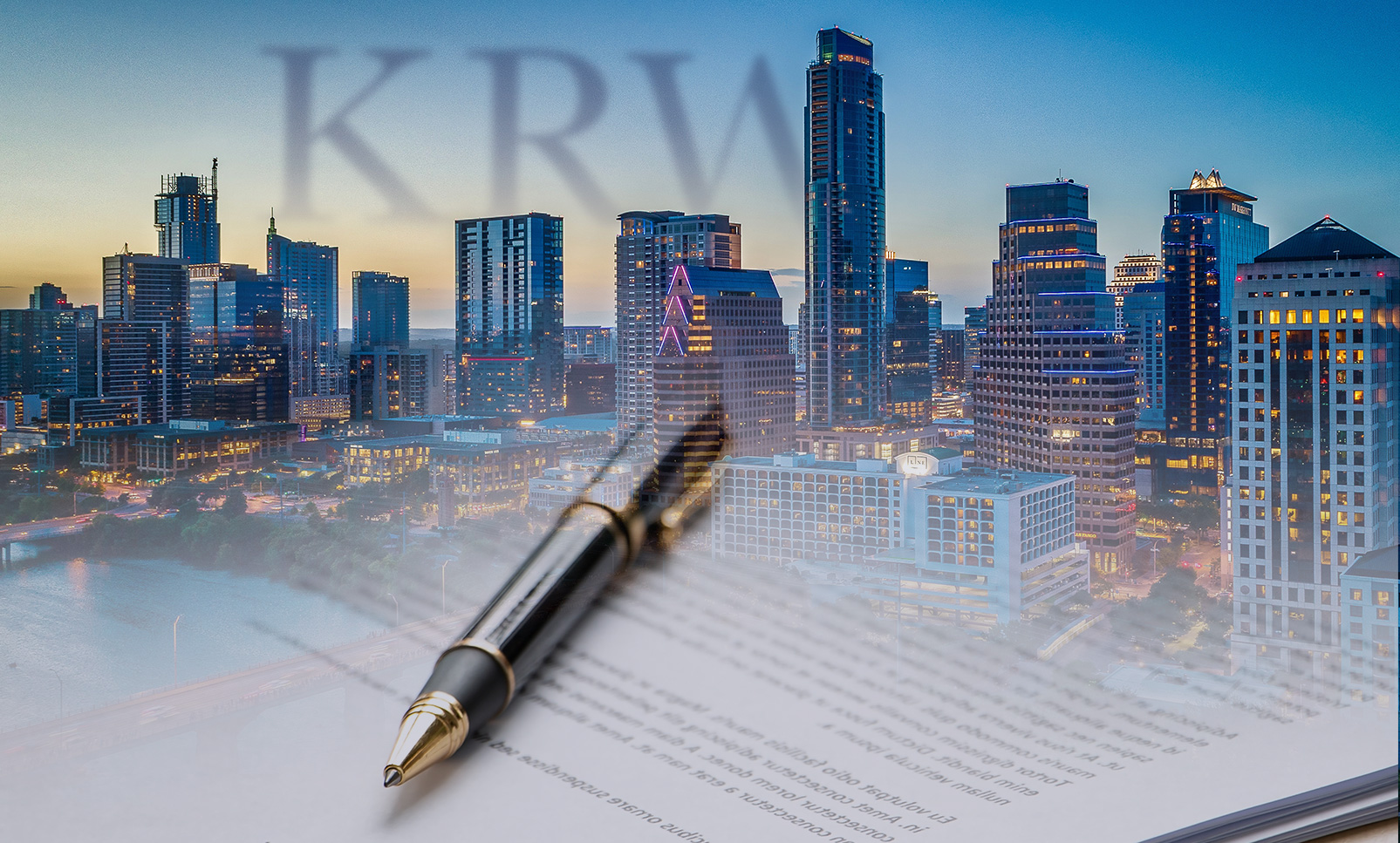


San Antonio Personal Injury & Mass Tort Attorneys
Protecting the Rights of the Vulnerable in Texas & Louisiana Since 2006
From mounting medical bills to lost wages, suffering a wrongful injury can be incredibly overwhelming for victims and their families. If you were harmed by another’s negligence in San Antonio, you deserve justice and compensation for your injuries. This is where a reputable injury law firm can make all the difference.
At KRW Lawyers, we understand the profound impacts that an unexpected accident can have on your physical, emotional, and financial well-being. Our personal injury and mass tort lawyers are dedicated to holding negligent parties accountable and recovering a comprehensive settlement for all your current and future care needs.
With decades of experience and over $1 Billion recovered, you can trust our attorneys to represent your best interests in and out of the courtroom. Our firm is proud to have its members recognized by Super Lawyers and Martindale-Hubbell, underscoring our impressive record of results and commitment to excellence, integrity, and service.
Don’t pay the price for someone else’s negligence—contact KRW Lawyers for the relentless advocacy you deserve. Contact us online to discuss your case.




How We Help
KRW Lawyers is proud to be your one powerful law firm in the heart of San Antonio. Whether you suffered an oil rig injury in the Permian Basin, slipped on unmarked wet floors at the River Walk, or were harmed by a dangerous drug, our attorneys are dedicated to recovering the maximum compensation you need to focus on your recovery.
Our primary practice areas include:
Personal Injury
If you were wrongfully injured, put decades of experience in your corner with KRW Lawyers. Whether you were bit by a dog, injured in an 18-wheeler accident, or suffered a workplace injury, our lawyers can work diligently to recover a fair settlement while protecting your rights against greedy insurers.
Mass Torts
We have proven results and experience handling all types mass torts, from asbestos related cancers and mesothelioma, to mass disasters and product liability claims.
Whether you were diagnosed with mesothelioma after asbestos exposure or harmed by pharmaceutical negligence, our attorneys have a deep understanding of these cases to aggressively pursue justice.



Your Voice, Your Choice
At KRW Lawyers, we understand the profound physical, emotional, and financial burdens that come with a serious injury. No matter your legal circumstances, our firm is dedicated to providing the unwavering support you need to restore your health. In 2006, we embarked on a mission to protect the rights of the vulnerable in our community. While we have grown in size over the years, we remain rooted in our core values.
When you partner with us, you can expect client-centric counsel and comprehensive support from a compassionate and knowledgeable team of advocates. We will never direct you down a path that you are uncomfortable with, but are here to amplify your voice, guide you toward informed legal decision-making, and help you move forward with confidence and clarity.
If you were wrongfully injured in San Antonio, our attorneys can tirelessly pursue justice and compensation on your behalf. Call (855) 770-4045 to schedule a free consultation.


-
“Henry and Lisa were able to quickly take my case and had it closed in a short time. They kept great communication and always followed up with phone calls just to check in. I highly recommend them if you ever need legal assistance.”- Russ D.
-
“My case was drawn out and took a year and half to settle but Mr. Morales and Genevieve did an amazing job! They kept me informed on all negotiations and would highly recommend them.”- Anisha P.
-
“We were involved in a hit and run accident that left us severely injured. What my insurance company offered was so small that I knew we needed help. From first contact with Genevieve Casanova (paralegal) we were well cared for. She was professional and kind, stayed in touch, answering all of my questions and addressing my concerns with grace. Our lawyer Nicholas Morales went above and beyond for us and we are grateful.”- Tanya W.
-
“I had an excellent experience with KRW. Their professionalism and dedication were evident throughout the entire process. I cannot thank them enough for their support and expertise. Highly recommended!”- Fabian N.
-
“My experience with KRW Lawyers has been awesome! Joshua Hatley and his asst. Brittany Martinez were always readily available, professional, and kind! Thank God for these amazing individuals who were always doing their job. I am eternally grateful for all the work they did to keep my case moving forward.”- Valeria G.
-
“I’m incredibly grateful to KRW Law Firm for taking on my car accident case and securing a settlement for the injuries my wife and I sustained. From start to finish, my attorney, Henry Wollam, was confident, knowledgeable, and professional—exactly what you want when you're going through a stressful situation. He clearly knew the process inside and out, which gave me peace of mind throughout. The entire staff, especially Genevieve, was also courteous, responsive, and professional every step of the way. I highly recommend KRW to anyone in need of legal help.”- Jay E.
-
“I’m truly satisfied with the results of my personal injury case due to the representation of KRW Lawyers. His paralegal Ms. Genevieve Casanova also did amazing at staying in contact with me and answering any questions I had. I highly recommend you contact them immediately if you’ve been in an accident that caused you injuries!”- Kayla B.
-
“I reached out to KRW for help because of a workplace accident. They were able to assist me professionally and fairly. They spoke directly to me and did not promise things that could not be delivered.”- Former Client
-
“It is hard to adequately describe quality of the legal representation I received from KRW. From day one, Joshua Hatley and his assistant Brittany, were courteous, fair, attentive, hard-working, and most of all, HONEST.”- Jack S.


Why Choose KRW Lawyers?
Some advantages of partnering with our accomplished attorneys include:
When your health and financial future are at stake, having confidence in your legal representation is essential. At KRW Lawyers, we take pride in providing dedicated and personalized counsel backed by five-star reviews and over 20 years of experience.
-
Proven Record of Results
Since 2006, our award-winning advocates have forged a proven track record in personal injury and mass tort cases. With over $1 billion recovered for clients across Texas and Louisiana, you can trust us to pursue the best possible outcome in your case.
-
Honest & Upfront Communication
When you work with us, you can expect upfront communication and candid counsel from start to finish. We deeply value honesty and integrity, which is why we strive to build lasting relationships with every client we serve.
-
Awards & Accolades
Our BBB-accredited team has an AV Preeminent Rating® from Martindale-Hubbell and has proud members of the Multi-Million Dollar Advocates Forum®, an honor held by fewer than 1% of attorneys nationwide.
-
Free Case Evaluations
At KRW Lawyers, our goal is to alleviate stress during the legal process so you can focus on healing. Our firm is available 24/7 to address any questions or concerns you have. We offer free consultations and contingency fees, meaning you won’t owe us a cent until we win a settlement.











